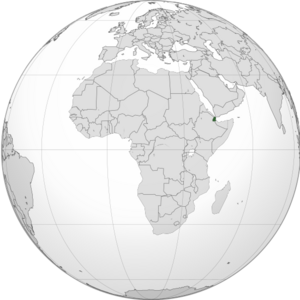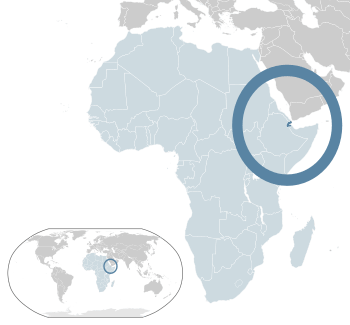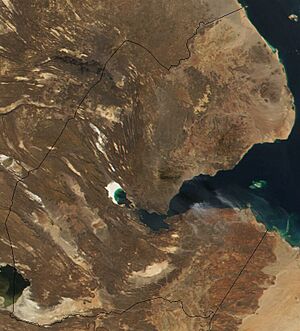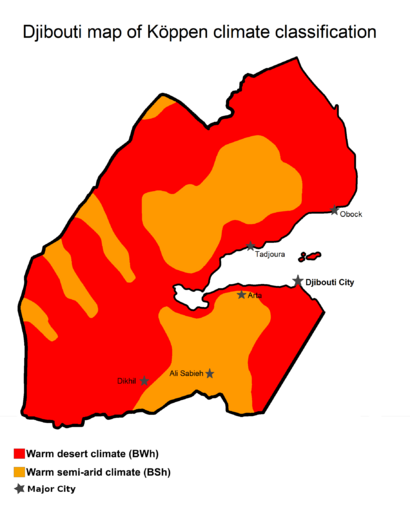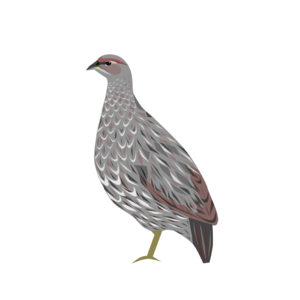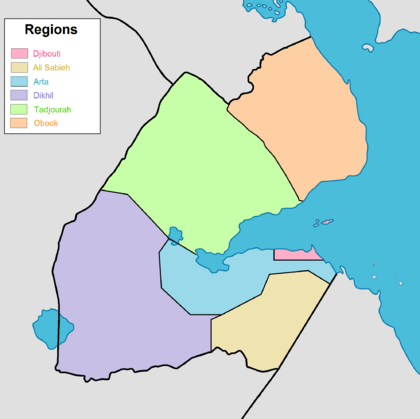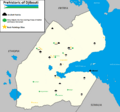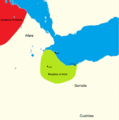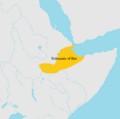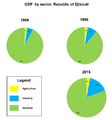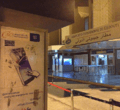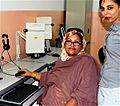Djibouti facts for kids
Quick facts for kids
Republic of Djibouti
|
|
|---|---|
|
|
|
|
Anthem: Djibouti
|
|
| Capital and largest city
|
Djibouti 11°36′N 43°10′E / 11.600°N 43.167°E |
| Official languages | |
| National languages | |
| Ethnic groups |
|
| Religion | 94% Islam (official) 6% Christianity |
| Demonym(s) | Djiboutian |
| Government | Unitary presidential republic under a hereditary dictatorship |
| Ismaïl Omar Guelleh | |
|
• Prime Minister
|
Abdoulkader Kamil Mohamed |
| Legislature | National Assembly |
| Formation | |
|
• Obock Territory
|
12 May 1862 |
|
• French Somaliland
|
20 May 1883 |
|
• French Territory of the Afars and Issas
|
5 July 1967 |
|
• Independence from France
|
27 June 1977 |
|
• Admitted to the United Nations
|
20 September 1977 |
|
• Current constitution
|
4 September 1992 |
| Area | |
|
• Total
|
23,200 km2 (9,000 sq mi) (146th) |
|
• Water (%)
|
0.09 (20 km² / 7.7 sq mi) |
| Population | |
|
• 2024 census
|
1,066,809 |
|
• Density
|
46.0/km2 (119.1/sq mi) (168th) |
| GDP (PPP) | 2023 estimate |
|
• Total
|
|
|
• Per capita
|
|
| GDP (nominal) | 2023 estimate |
|
• Total
|
|
|
• Per capita
|
|
| Gini (2017) | ▲ 41.6 medium |
| HDI (2021) | low · 171st |
| Currency | Djiboutian franc (DJF) |
| Time zone | UTC+3 (EAT) |
| Driving side | right |
| Calling code | +253 |
| ISO 3166 code | DJ |
| Internet TLD | .dj |
Djibouti (officially called the Republic of Djibouti) is a country on the eastern coast of Africa. Its capital city is also called Djibouti.
Djibouti became independent from France on June 27, 1977. Before that, it was known as French Somaliland. This area was set up by France in the 1800s as part of its control over parts of Africa.
In 2020, about 920,000 people lived in Djibouti. It is one of the countries in Africa with the fewest people. Most of the people living there belong to two main groups: the Somali and the Afar.
Djibouti joined the United Nations on September 20, 1977. It is also a member of the Arab League, the African Union, and the Intergovernmental Authority on Development (IGAD).
Contents
What's in a Name? The Meaning of Djibouti
The country is officially known as the Republic of Djibouti. In local languages, it's called Gabuuti (in Afar) and Jabuuti (in Somali).
The country gets its name from its capital, the City of Djibouti. No one is completely sure where the name comes from. There are different ideas and stories about its origin.
- One idea is that it comes from the Afar word gabouti, which means "plate." This might refer to the flat areas in the region.
- Another idea links it to gabood, meaning "upland" or "plateau."
- Some even think Djibouti could mean "Land of Tehuti" or "Land of Thoth" (an ancient Egyptian moon god).
A Quick Look at Djibouti's History
Djibouti's history goes back thousands of years. Long ago, it was part of the Sabean Empire in Ethiopia. People from Djibouti traded animal hides and skins for perfumes and spices from ancient Egypt, Pakistan, and China.
Because of close ties with the Arabian Peninsula for over 1,000 years, the Somali and Afar tribes in this area were among the first in Africa to accept Islam. Today, Djibouti is a Muslim country. It often takes part in Islamic and Arab meetings.
The country is located near a narrow part of the Red Sea. This makes it a very important area for military reasons.
Exploring Djibouti's Geography
Where is Djibouti Located?
Djibouti is in the Horn of Africa. It sits on the Gulf of Aden and the Bab-el-Mandeb, which is the southern entrance to the Red Sea. It is located between 11° and 14°N latitude and 41° and 44°E longitude. This is also the northernmost point of the Great Rift Valley.
In Djibouti, three major tectonic plates meet: the African Plate, the Somali Plate, and the Arabian Plate. This meeting point has created some amazing landforms. For example, Lake Assal is the lowest point in all of Africa. It is also the second-lowest dry land area on Earth, only surpassed by the area near the border of Jordan and Israel.
Djibouti's coastline is about 314 kilometers (195 miles) long. The land is mostly made up of plateaus, plains, and highlands. The country covers a total area of 23,200 square kilometers (8,958 square miles).
Its borders stretch for 575 kilometers (357 miles):
- 125 km (78 mi) with Eritrea
- 390 km (242 mi) with Ethiopia
- 60 km (37 mi) with Somaliland
Djibouti is the southernmost country on the Arabian Plate.
Mountains and Deserts
Djibouti has eight mountain ranges with peaks higher than 1,000 meters (3,280 feet). The Mousa Ali range is the country's highest. Its tallest peak, on the border with Ethiopia and Eritrea, reaches 2,028 meters (6,654 feet).
The Grand Bara desert covers parts of southern Djibouti. This includes areas in the Arta, Ali Sabieh, and Dikhil regions. Most of this desert is at a low elevation, below 518 meters (1,700 feet).
Djibouti's Climate
Djibouti's climate is much warmer than the world average. It also has less change between seasons. Average daily high temperatures range from 32 to 41°C (90 to 106°F), except in higher areas.
For example, in Djibouti City, average afternoon highs are 28 to 34°C (82 to 93°F) in April. But in Airolaf, which is higher up (1,535 to 1,600 meters or 5,036 to 5,249 feet), the highest temperature is 30°C (86°F) in summer. The lowest temperature there in winter is 9°C (48°F).
December and January are the coolest months. Average low temperatures can drop to 15°C (59°F). Djibouti has either a hot semi-arid climate or a hot desert climate. However, temperatures are much milder in the highest elevations.
Rainfall varies across the country:
- Along the eastern coast, annual rainfall is less than 5 inches (127 mm).
- In the central highlands, rainfall is about 8 to 16 inches (203 to 406 mm).
The inland areas are much less humid than the coastal regions.
| Location | July (°C) | July (°F) | January (°C) | January (°F) |
|---|---|---|---|---|
| Djibouti City | 41/31 | 107/88 | 28/21 | 83/70 |
| Ali Sabieh | 36/25 | 96/77 | 26/15 | 79/60 |
| Tadjoura | 41/31 | 107/88 | 29/22 | 84/72 |
| Dikhil | 38/27 | 100/81 | 27/17 | 80/63 |
| Obock | 41/30 | 105/87 | 28/22 | 84/72 |
| Arta | 36/25 | 97/78 | 25/15 | 78/60 |
| Randa | 34/23 | 94/73 | 23/13 | 74/56 |
| Holhol | 38/28 | 101/81 | 26/17 | 79/62 |
| Ali Adde | 38/27 | 100/82 | 26/16 | 80/61 |
| Airolaf | 31/18 | 88/66 | 22/9 | 71/49 |
Amazing Wildlife of Djibouti
Djibouti's plants and animals live in a tough environment. Forests cover less than one percent of the country. Wildlife is found in three main areas: the northern mountains, the volcanic plateaus in the south and center, and the coastal region.
Most wildlife species are in the northern part of the country, especially in the Day Forest National Park. This area is about 1,500 meters (4,921 feet) high. It includes the Goda massif, with a peak of 1,783 meters (5,850 feet). The park has a 3.5 square kilometer (1.4 square mile) forest of Juniperus procera trees, some growing up to 20 meters (66 feet) tall.
This forest is the main home for the critically endangered Djibouti francolin (a bird). It also has a recently discovered snake called Platyceps afarensis. Many types of plants, including boxwood and olive trees, grow here. They make up 60% of all identified plant species in Djibouti.
Djibouti is home to:
- Over 820 types of plants
- 493 types of invertebrates (animals without backbones)
- 455 types of fish
- 40 types of reptiles
- 3 types of amphibians
- 360 types of birds
- 66 types of mammals
Djibouti's wildlife is part of the Horn of Africa biodiversity hotspot. Its coastal waters are also part of the Red Sea and Gulf of Aden coral reef hotspot.
Mammals include several types of antelope, like Soemmerring's gazelle and Pelzeln's gazelle. Since hunting was banned in the early 1970s, these animals are now well protected. Other animals found here are Grevy's zebra, hamadryas baboon, and Hunter's antelope. The warthog, which is a vulnerable species, also lives in the Day National Park.
In the coastal waters, you can find dugongs and Abyssinian genets. Green turtles and hawksbill turtles are also in the coastal waters, where they lay their eggs. The Northeast African cheetah is thought to be no longer living in Djibouti.
How Djibouti is Governed
Djibouti is a unitary presidential republic. This means that the President holds the main power. The President leads the government, and the National Assembly also has law-making power.
Regions and Cities of Djibouti
Djibouti is divided into six main administrative regions. Djibouti City is one of these official regions. These regions are then split into twenty smaller areas called districts.
| Region | Area (km2) | Population (2010) | Capital |
|---|---|---|---|
| Ali Sabieh | 2,200 | 71,640 | Ali Sabieh |
| Arta | 1,800 | 40,163 | Arta |
| Dikhil | 7,200 | 83,409 | Dikhil |
| Djibouti | 200 | 529,900 (2015 est.) | Djibouti City |
| Obock | 4,700 | 36,083 | Obock |
| Tadjourah | 7,100 | 84,041 | Tadjoura |
Largest Cities in Djibouti
|
Largest cities or towns in Djibouti
According to the 2009 Census |
||
|---|---|---|
| Rank | Name | Pop. |
| 1 | Djibouti | 475,322 |
| 2 | Ali Sabieh | 37,939 |
| 3 | Dikhil | 24,886 |
| 4 | Tadjoura | 14,820 |
| 5 | Arta | 13,260 |
| 6 | Obock | 11,706 |
| 7 | Ali Adde | 3,500 |
| 8 | Holhol | 3,000 |
| 9 | Airolaf | 1,023 |
| 10 | Randa | 1,023 |
Religion in Djibouti
Most people in Djibouti are Muslim. About 94% of Djibouti's population (around 740,000 people in 2010) follows Islam. The other six percent are Christians.
| Religion in Djibouti | ||||
|---|---|---|---|---|
| religion | percent | |||
| Islam | 94% | |||
| Christianity | 6% | |||
The Republic of Djibouti officially names Islam as its only state religion. However, the country's Constitution from 1992 says that all citizens have equal rights, no matter their faith. It also allows people to practice any religion freely.
Djibouti's Culture

Djiboutian clothing is made for the hot and dry climate. Men often wear a macawiis, which is a traditional wrap-around skirt. Many nomadic people wear a loose white cotton robe called a tobe, which goes down to the knee.
Women usually wear a dirac, a long, light, see-through dress made of cotton or polyester. It's worn over a full-length slip and a bra. Married women often wear head-scarves called shash and sometimes cover their upper body with a shawl called garbasaar. Younger or unmarried women don't always cover their heads. Traditional Arabian clothes like the male jellabiya and female jilbāb are also common. For special events, women might wear unique jewelry and head-dresses, similar to those worn by Berber tribes.
Much of Djibouti's original art is passed down through stories and songs. You can also see Islamic, Ottoman, and French influences in local buildings. These buildings often have plasterwork, detailed designs, and beautiful calligraphy.
Music of Djibouti
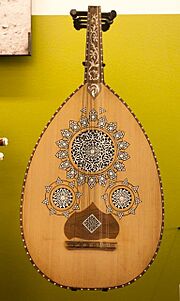
Somalis have a rich musical history based on traditional Somali folklore. Most Somali songs use a pentatonic scale, meaning they use only five notes in an octave. This is different from the seven-note scales common in Western music. At first, Somali music might sound like music from nearby Ethiopia or Sudan, but it has its own unique tunes and styles.
Somali songs are usually a team effort. They involve:
- Lyricists (who write the words)
- Songwriters (who create the melody)
- Singers (who perform the song)
Balwo is a popular Somali music style in Djibouti that focuses on love stories.
Traditional Afar music sounds similar to folk music from other parts of the Horn of Africa, like Ethiopia. It also has some elements of Arabic music. The history of Djibouti is kept alive in the poems and songs of its nomadic people. This tradition goes back thousands of years to when people traded hides and skins for perfumes and spices from ancient Egypt, India, and China. Afar oral literature is also very musical. It includes many types of songs for weddings, war, praise, and boasting.
Literature and Poetry
Djibouti has a long history of poetry. Somali poetry has several well-developed forms, like the gabay, jiifto, and buraanbur. The gabay (epic poem) is the most complex, often having over 100 lines. A young poet who can write a gabay is seen as very skilled. Groups of people who memorize and recite poems traditionally shared these art forms.
Poems often focus on themes like:
- Baroorodiiq (songs of sadness for someone who died)
- Amaan (praise)
- Jacayl (romance)
- Guhaadin (strong criticism)
- Digasho (gloating)
- Guubaabo (guidance)
The baroorodiiq is created to remember a famous poet or person who has passed away. The Afar people know about the ginnili, who are warrior-poets and fortune-tellers. They also have many traditional folk stories and battle songs.
Djibouti also has a long history of Islamic literature. One important historical work is the medieval Futuh Al-Habash by Shihāb al-Dīn. This book tells the story of the Adal Sultanate's conquest of Abyssinia in the 16th century. In recent years, many politicians and thinkers have also written their memories or thoughts about the country.
Sports in Djibouti

Football (soccer) is the most popular sport in Djibouti. The country joined FIFA in 1994. They have taken part in qualifying rounds for the African Cup of Nations and the FIFA World Cup since the mid-2000s. In November 2007, the Djibouti national football team beat Somalia's national team 1–0 in a World Cup qualifying match. This was their first-ever World Cup-related win!
Recently, the World Archery Federation has helped set up the Djibouti Archery Federation. An international archery training center is being built in Arta. This center will help develop archery in East Africa and the Red Sea area.
Delicious Djiboutian Food
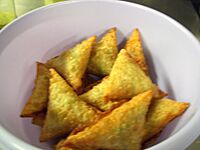
Djiboutian cuisine is a mix of Somali, Afar, Yemeni, and French cuisine. It also has some influences from South Asian (especially Indian) cooking.
Local dishes often use many Middle Eastern spices, from saffron to cinnamon. Grilled Yemeni fish, cut in half and often cooked in tandoori-style ovens, is a local favorite. Spicy dishes come in many forms:
- Traditional Fah-fah or "Soupe Djiboutienne" (a spicy boiled beef soup)
- Yetakelt wet (a spicy mixed vegetable stew)
Xalwo (pronounced "halwo") or halva is a popular sweet treat. It's eaten during celebrations like Eid and wedding receptions. Halva is made from sugar, corn starch, cardamom powder, nutmeg powder, and ghee (clarified butter). Sometimes, peanuts are added for extra texture and flavor.
After meals, homes are traditionally filled with the scent of incense (cuunsi) or frankincense (lubaan). These are burned in a special incense burner called a dabqaad.
Images for kids
-
Queen Ati, wife of King Perahu of Punt, as shown on Pharaoh Hatshepsut's temple
-
The Ifat Sultanate's realm in the 14th century
-
The Ottoman Eyalet in 1566
-
An aerial view of Djibouti City, the capital of Djibouti
-
The Djibouti Telecom headquarters in Djibouti City
See also
 In Spanish: Yibuti para niños
In Spanish: Yibuti para niños
 | Jewel Prestage |
 | Ella Baker |
 | Fannie Lou Hamer |




